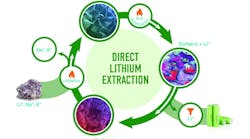Treating wastewater from hydraulic fracturing, or fracking, for drinking water supplies can lead to the formation of toxic byproducts, a new study suggests.
The research, published in the American Chemical Society journal Environmental Science & Technology, found that discharge of fracking wastewater to rivers, even after it has passed through wastewater treatment plants, could put the drinking water supplies of downstream cities at risk.
William A. Mitch, Avner Vengosh and colleagues said that the wastewater that results from fracking can be highly radioactive and contain high levels of heavy metals and salts called halides (bromide, chloride and iodide). While most sites recycle the wastewater, one approach is to treat it in municipal or commercial treatment plants and then release it into rivers and other surface waters.
However, according to the researchers, these plants are not effective enough at removing halides. They expressed concern that halide-contaminated surface water subsequently treated for drinking through the use of conventional methods, such as chlorination or ozonation, could lead to the formation of toxic byproducts.
For their study, the researchers diluted river-water samples of fracking wastewater discharged from operations in Pennsylvania and Arkansas. They did this to simulate what happens in the real world when wastewater gets into the environment.
Back in the lab, after using current drinking-water disinfection methods on the samples, the team found that even at low concentrations a variety of toxic compounds formed.
Based on their findings, the researchers recommend either that fracking wastewater should not be discharged at all into surface waters or that water treatment facilities introduce specific techniques for removing halides.


